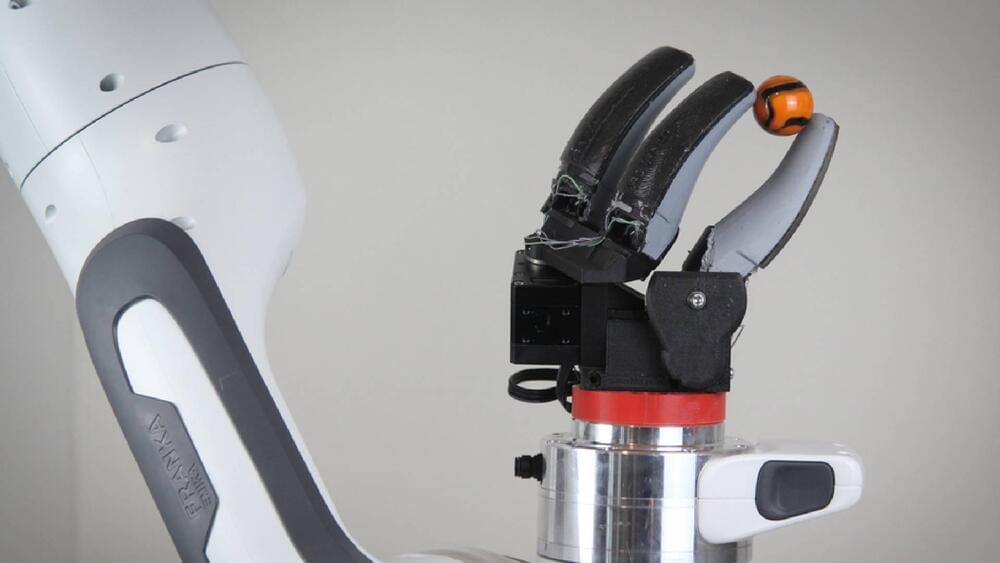One misconfigured SAS token has resulted in an expansive GitHub blunder.



They announced the Nobel prizes this week! But did any of the recipients teach an AI to play Street Fighter? Here are a few of this week’s stories not yet lauded by international committees of scientists, but which we thought were pretty good:
Even if you think a galaxy is old enough to drink, you should probably go ahead and ask for ID before you serve them. The earliest galaxies in the universe captured by the James Webb Space Telescope appeared too bright, massive and way too old to have formed that soon after the Big Bang, presenting a problem for astronomers and their favorite model, the standard model of cosmology.
Recently, a team of physicists at Northwestern University used computer simulations to model galaxy formation after the Big Bang and demonstrate that (at least in the model universe) stars formed in bursts, producing light of enormously greater intensity than a modern galaxy like, say, Andromeda, where star formation is steady and the number of stars gradually increases over time.

Although AGI was significantly more likely to be detected after sexual assault than consensual sexual intercourse, more than half of survivors of sexual assault have no detectable injuries. The presence of AGI, therefore, does not prove there has been sexual violence and absence of injury does not refute that sexual assault has occurred.
The University of Birmingham.
#medicalAI
Generative AI for medical imaging can create infinite synthetic images of the human anatomy. These large, synthetic datasets are used for training generalizable AI models that can learn from evolving patient data while preserving patient privacy. Learn how MONAI, a framework for building and deploying medical AI, and partners like King’s College London, Mount Sinai, and East River Imaging are using generative AI to study disease and make AI decisions and predictions more accurate, trusted, and safe.
This video is about How ChatGPT/ AI can disrupt healthcare.
ChatGPT is an AI-powered chat platform developed by OpenAI. It allows users to ask questions in a conversational format and build on previous conversations, which allows for improved learning over time. Microsoft has invested billions of dollars in ChatGPT, integrating it into their search engine Bing and web browser Edge. Although the rise of AI has caused concern over job security, ChatGPT currently requires human input to generate questions and diagnose patients, making it a tool to augment human abilities in healthcare. The technology can be used for diagnosis, research, medical education, and radiographs. It can assist healthcare professionals in diagnosing and researching diseases, visualizing anatomy and procedures, and analyzing medical images.
#chatgpt #ai #healthcare.
Try ChatGPT Here:
https://chat.openai.com/chat.
Try Dall-E2 Here:
https://labs.openai.com/
Try the NEW Bing here:

AI was used to assist in writing this article.
As we stand on the cusp of the third decade of the 21st century, it’s impossible not to wonder what the world will be like in 20 years. Technology is advancing at an unprecedented pace, reshaping the way we live, work, and interact with the world around us. While we can’t predict the future with absolute certainty, we can make some educated guesses based on current trends and emerging technologies. Here’s a glimpse into what life may look like in the year 2043.
Artificial Intelligence Everywhere Artificial intelligence (AI) will continue to permeate every aspect of our lives. AI-driven personal assistants will become even more sophisticated, anticipating our needs and managing various aspects of our daily routines. From smart homes that adjust to our preferences in real-time to AI-powered healthcare diagnostics, AI will be omnipresent.

OpenAI, one of the best-funded AI startups in business, is exploring making its own AI chips.
Discussions of AI chip strategies within the company have been ongoing since at least last year, according to Reuters, as the shortage of chips to train AI models worsens. OpenAI is reportedly considering a number of strategies to advance its chip ambitions, including acquiring an AI chip manufacturer or mounting an effort to design chips internally.
OpenAI CEO Sam Altman has made the acquisition of more AI chips a top priority for the company, Reuters reports.


Robot arms yield powerful jets of water and sand.
Do you know how heavy container ships are decommissioned? The process takes place in South Asia with the use of fossil fuel-powered torches to tear the ships apart and cut them into smaller pieces.
This results in much pollution both from emissions and the waste that runs down to the sea from the broken ships. It is also quite dangerous for the operators who have no protective clothing and often suffer many fatalities.

The system only flagged eight false warnings and missed one earthquake.
High precision and accuracy in earthquake prediction continues to be a key scientific challenge, and artificial intelligence (AI) has been investigated as a technique to enhance our capabilities in this crucial area.
This is because AI can analyze large datasets of seismic activity and identify patterns or anomalies that human analysts might miss. Machine learning algorithms can thus help researchers understand earthquake patterns better.